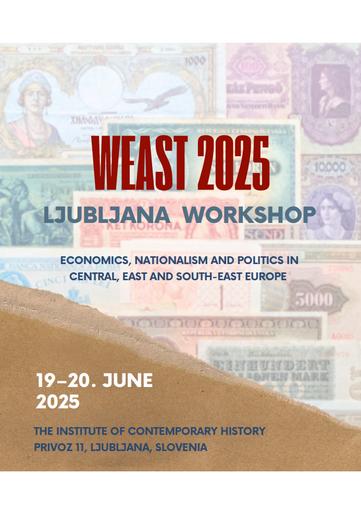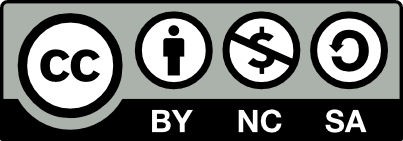/
Dogodki
/
Konference
The industrialisation problem
Cartels and state-owned business


To delo avtorja Zachary Mazur je ponujeno pod Creative Commons Priznanje avtorstva-Nekomercialno-Deljenje pod enakimi pogoji 4.0 Mednarodna
Datoteke (1)
Opis
I will present a chapter from my upcoming book, The Statecrafters: Poland’s Quest for Economic Sovereignty 1900- 1939. The book’s narrative arc reveals how Polish decisionmakers attempted to redistribute resources for the purposes of nation-building. Elites in Warsaw assumed that the nation required development: ‘civilisational’ development in the form of literacy, hygiene and industriousness, as well as spiritual and material development. The chapters are not strictly chronological, and develop different existential problems that the Polish state had to face and find responses to: monetary policy, taxation, trade, international investment, rural reform and industrialisation. With each one of these issues, the way elites perceived them was directly responsible for how people sought solutions. Thus, the ideas behind each issue and each policy decision are a main focus of each chapter in order to uncover why certain decisions were ultimately made. As the book’s chapters develop, the most serious boundaries placed on a state’s ability to maintain sovereignty are economic. All other factors – administrative and military capacity, security and safety for citizens, political and economic stability – flow from state finance. The chapter I will present covers the issue of industrialisation. Throughout the interwar period a growing consensus of governing elites believed that only the state could provide the industrialisation push the country needed. This culminated in the Central Industrial Area or COP, a project that began in 1937 to construct iron works, power plants, and armaments factories in a part of the country where there was little industry and the rural areas were considered “overpopulated.” Since these new industries would be mostly state-owned, they would not be in the hands of foreign capital and therefore safely “Polish.” COP was thus intended to provide security, guaranteeing sovereignty through armaments, while simultaneously “Polonizing” key industries.
Metapodatki (11)
- identifikatorhttps://hdl.handle.net/11686/71113
- naslov
- The industrialisation problem
- Cartels and state-owned business
- avtor
- Zachary Mazur
- soavtor
- Nataša Henig Miščič (mod.)
- predmet
- industrializacija
- gospodarstvo
- državna podjetja
- karteli
- Poljska
- opis
- I will present a chapter from my upcoming book, The Statecrafters: Poland’s Quest for Economic Sovereignty 1900- 1939. The book’s narrative arc reveals how Polish decisionmakers attempted to redistribute resources for the purposes of nation-building. Elites in Warsaw assumed that the nation required development: ‘civilisational’ development in the form of literacy, hygiene and industriousness, as well as spiritual and material development. The chapters are not strictly chronological, and develop different existential problems that the Polish state had to face and find responses to: monetary policy, taxation, trade, international investment, rural reform and industrialisation. With each one of these issues, the way elites perceived them was directly responsible for how people sought solutions. Thus, the ideas behind each issue and each policy decision are a main focus of each chapter in order to uncover why certain decisions were ultimately made. As the book’s chapters develop, the most serious boundaries placed on a state’s ability to maintain sovereignty are economic. All other factors – administrative and military capacity, security and safety for citizens, political and economic stability – flow from state finance. The chapter I will present covers the issue of industrialisation. Throughout the interwar period a growing consensus of governing elites believed that only the state could provide the industrialisation push the country needed. This culminated in the Central Industrial Area or COP, a project that began in 1937 to construct iron works, power plants, and armaments factories in a part of the country where there was little industry and the rural areas were considered “overpopulated.” Since these new industries would be mostly state-owned, they would not be in the hands of foreign capital and therefore safely “Polish.” COP was thus intended to provide security, guaranteeing sovereignty through armaments, while simultaneously “Polonizing” key industries.
- datum
- 06. 2025
- tip
- video
- jezik
- Angleščina
- jeDelOd
- pravice
- licenca: ccByNcSa
